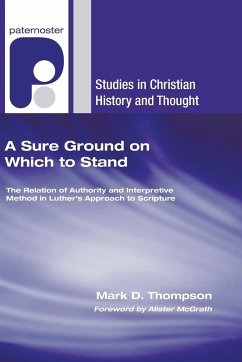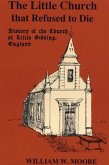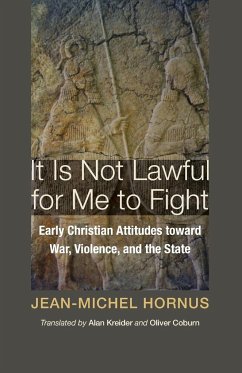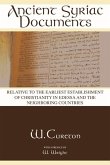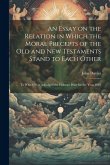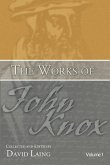Martin Luther's importance in the history of the doctrine of Scripture is universally acknowledged. However, many modern studies of this aspect of Luther's thought are colored by attempts to acquire him for one side or other of the contemporary theological debate. Luther has been variously painted as a fundamentalist, the forerunner of biblical criticism, a pragmatist, and even a proto-existentialist. Karl Barth's idiosyncratic appropriation of the reformer in the first volume of his Church Dogmatics has been particularly influential. This study attempts a fresh examination of the most significant of Luther's comments on the nature and use of Scripture, locating each in its literary and historical context. It explores a series of connections in Luther's thought, analyzing his scattered statements in terms of four categories reflected in his own terminology: inspiration (inspiratio), unity (tota scriptura), clarity (claritas scripturae), and sufficiency (sola scriptura). In particular, it seeks to identify those elements that enable Luther to move with confidence between his statements about the authority of Scripture and his interpretive method. ""Mark Thompson forcefully appeals, against different modernizings of the German Reformer, that we 'let Luther be Luther' on the doctrine of Scripture itself--its inspiration, unity, clarity, and sufficiency. Luther turns out to be less an anticipation of a modern biblical critic and more a conservative in the lineage of the Fathers and medievals. This is an important corrective interpretation, not least because Luther deployed the Word with such vibrant power. The recovery of the latter in the contemporary church may depend on recapturing the Luther-like confidence in handling Scripture."" --David F. Wright, University of Edinburgh ""Nothing is more important for understanding Martin Luther than a grasp of his approach to the Holy Scriptures on which he based his faith and doctrine. In this illuminating study Mark Thompson explains the many different ways in which Luther approached the biblical text and reveals a man whose understanding of God's Word defies simplistic analysis. In the process he engages with modern Lutherans who have so often appropriated some parts of Luther's legacy but ignored others. This book will be essential reading for everyone with a serious interest in Luther and in the gospel which he proclaimed."" --Gerald Bray, Beeson Divinity School Mark D. Thompson is Senior Lecturer in Theology and Academic Dean at Moore College, Sydney. His DPhil thesis (upon which the present work is closely based) was accepted by the University of Oxford in 1997. He is coeditor of The Gospel to the Nations: Perspectives on Paul's Mission (2000).
Hinweis: Dieser Artikel kann nur an eine deutsche Lieferadresse ausgeliefert werden.
Hinweis: Dieser Artikel kann nur an eine deutsche Lieferadresse ausgeliefert werden.

